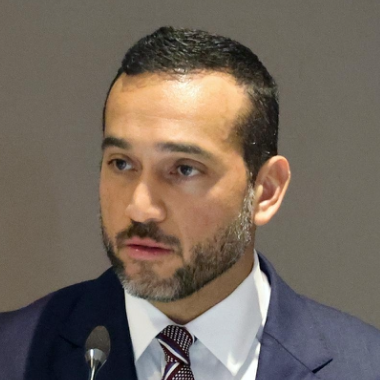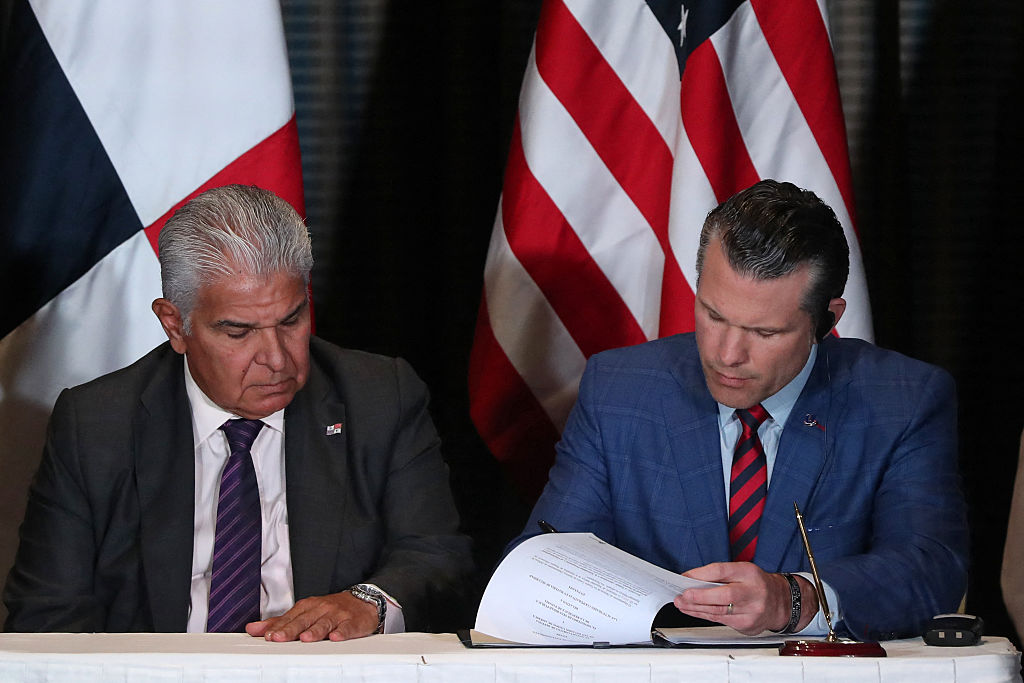
A recent article published by Americas Quarterly argued that Panama should abandon its current posture of cooperation with the U.S. in response to growing pressure from President Trump regarding the Panama Canal. While concern for national sovereignty is understandable—and one that I have proudly shared and defended before the UN Security Council and in many capitals of the world for years—the path proposed, rooted in isolationism and reactive nationalism, is not only dangerous. It is strategically unsound.
Panama’s sovereignty is not defended by retreating from the world, nor by refusing to engage with allies because their requests weren’t phrased “nicely.” And yes—even under the Trump administration—the U.S. remains a central pillar of the international order. Sovereignty is not defined by reactive confrontation; it is measured by a state’s ability to assert its interests intelligently through deliberate and rational alliances. The evolution of the international system and the lessons of history show us again and again: Small but strategic nations like Panama do not thrive through theatrical displays or empty confrontations dressed up as political commentary. They thrive by understanding the global balance of power as it is, not as they wish it were.
That is precisely what President Mulino has chosen to do. He has not retreated, nor performed for applause on social media. He decided to govern as a statesman grounded in international realities—not in domestic theatrics. He is the first Panamanian president in the post–Canal Treaty era to face a foreign policy crisis of this magnitude with the pragmatic clarity to admit that there is no elegant solution, no magic formula to resolve all dimensions of the challenge at once. That solution simply doesn’t exist.
As we watch international relations habits such as “strongly worded ministerial letters” and multilateral resolutions crash and burn, Panama’s response to rhetoric about the canal’s sovereignty must be shaped by the daily management of uncertainty, asymmetry and the unpredictable consequences of Murphy’s Law. In this new landscape, Mulino is not improvising. He is acting. As Metternich, the genius of realpolitik, rightly warned, “World politics is the organization of permanent interests among powers.” That is the framework Panama must operate within. And that is the framework Mulino has embraced not out of submission, but out of necessity.
To those who label such realism as weakness or capitulation, let us be clear: Panama is not a superpower. Acknowledging this fact is neither defeatist nor humiliating; it is a strategic truth—and a deeply honorable one. This truth must form the basis of an intelligent—as opposed to performatively gratifying—foreign policy. And it is this truth that President Mulino has embraced with conviction, principle, and the kind of solitude only leaders in hard times know.
President Mulino chose this path because Panama cannot afford a strategy of dissonance that antagonizes the U.S. to chase vague alliances with scattered actors, many of whom are grappling with their own crises across the geopolitical chessboard. The canal is not a weapon to be brandished every time someone delivers a provocative speech, whether abroad or at home. It is a global asset: a corridor of peace and interconnection. Its security, like its future, depends on anchoring Panama within a framework of neutrality, strategic alignment with trusted partners, and above all, a rules-based international order. That order is evolving rapidly and does not wait for domestic consensus at every turn. Panama cannot afford to get stuck in sterile posturing or narratives of grievance and generational resentment. Our strategy must evolve in step with the real world, not with a world that no longer exists.
The fundamental error in the argument that Panama should now “change strategy” in response to President Trump’s tweets rests in a misreading of the transformation Panama has undergone over the past century. We are no longer the occupied zone of 1903, nor the intervened republic of 1964. As Kissinger noted during the Carter-era canal negotiations, continued U.S. control of the canal would “look like pure colonialism.” That chapter is closed. What remains is a sovereign Panama, a country that chooses its alliances, defines its terms of engagement, and shapes its posture in accordance with its national interest. Strengthening cooperation with democratic nations is not a surrender of sovereignty. It is the most complete exercise of it.
As a former deputy foreign minister, I observe President Mulino’s critics and wonder: Where were they when former President Varela misled the U.S. ambassador about Panama’s geopolitical alignment with Beijing vs Taiwan? Sovereignty should not be invoked only when it suits one’s domestic narrative. True autonomy is measured in consistency and in concert with enduring national interests, in the statecraft to protect them, and in the maturity to strengthen cooperation with other democratic nations.
Equally flawed is the idea that Panama must “transcend the U.S.-China binary.” That notion ignores a harsh geopolitical truth: The critical threats to Panama’s sovereignty today do not come from Washington. They come from the global assertiveness of authoritarian regimes seeking to influence critical infrastructure, supply chains, ports, and digital systems—precisely because we have a canal that is fully our own. And in that restructuring, China is not alone. Like it or not, we are part of a global landscape shaped by renewed Great Power Competition. Whether this is a new Cold War is still debated. What isn’t debated is this: Great Power Competition is back, and it’s here to stay. Pretending otherwise, or believing neutrality can be recited like a mantra, is not strategy. It is self-deception—a luxury afforded only to those who have never truly looked at the world as it is.
Similarly, the idea that Panama should align with actors like Greenland or Denmark—or base its foreign policy on speculative tweets about the Suez Canal—reflects more romanticism than realism. Foreign policy must be grounded in concrete interests, not symbolic gestures. And yes, the U.S., with all its imperfections, remains a key democratic ally. It has stood beside Panama through the building and defense of the canal we now protect by a treaty that both nations have committed to respect. That history cannot be erased through emotion or selectively reframed. The real response to unfair and unexpected external pressure is not to break with our longest-standing allies, but to deepen those relationships.
As Panamanian thinker Carlos Chang Marín wrote, “True independence is not measured by solitude, but by the capacity to be free within a world of real forces.”
I did not vote for President Mulino. But after watching him—day after day—stand alone and make the hard decisions Chang Marín imagined, I would.
Panama does not have to choose between sovereignty and prosperity. It can—and must—secure both. The path forward is not reactive nationalism. It is “intelligent integration.” With Trump, and with every administration that may follow, however complex. We must manage our interests without succumbing to internal passions or strategic illusions dressed as political projects. Their time will come, because in democracy it always does.
But right now, what strategy requires most is unity behind our president. And that is not a slogan. It is a national imperative.
Panama needs a legitimate strategy grounded in reality. And with President Mulino, it has one. What it does not need is domestic divisions and international isolation.






